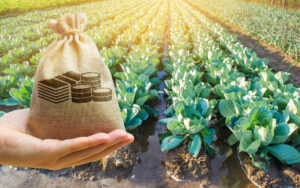Agriculture Puts a Bloom on St. Johns County Economy

Agriculture is more than crops and harvests, and St. Johns County is a perfect example.
According to the U.S. Department of Agriculture’s 2022 Census of Agriculture, the county’s 223 farms produce a range of commodities, from potatoes and vegetables to cattle, hogs and fruit. Those agricultural operations produced a market value of nearly $58 million.
“Agriculture plays a vital role in the economic landscape of St. Johns County, contributing significantly to job creation and gross regional product,” said Savannah Rodgers, project manager with St. Johns County Economic Development. “According to the (University of Florida-Institute of Food and Agricultural Sciences) Economic Impacts study of 2019, agricultural and related industries generate 32,963 jobs, which accounts for 26.1% of the total employment in the county.”
Those related industries include agribusiness suppliers, food processing and distribution companies, agritourism ventures and agricultural research, according to Rodgers.
“Additionally, the county’s natural beauty is a complementary benefit of the rich agricultural heritage of the area,” she said.
According to a USDA release announcing the publication of the 2022 Census of Agriculture, the report “provides a detailed picture of U.S. farms and ranches” and is “the leading source of uniform, comprehensive agricultural data for every state and county or county equivalent.”
The history of collecting data on U.S. agriculture dates back as far as President George Washington, who kept meticulous statistical records describing his own and other farms. In 1791, President Washington wrote to farmers requesting information on land values, crop acreages, crop yields, livestock prices, and taxes.
Rodgers said agriculture remains an important part of the fabric of the region.
“In addition to its economic significance, agriculture in St. Johns County is deeply intertwined with our cultural heritage and environmental stewardship,” she said. “Our agricultural community is characterized by its resilience, innovation and commitment to sustainability.”
Preserving and developing agricultural is also a priority for county officials.
“St. Johns County is committed to fostering a supportive environment for agribusiness growth and sustainability,” Rodgers said. “The county continues to explore ways in which to support and promote agribusiness development.”
The 2022 Census of Agriculture is the 30th Federal census of agriculture and the sixth conducted by the USDA. The U.S. Department of Commerce, Bureau of the Census conducted the census of agriculture for 156 years from 1840 to 1996.








